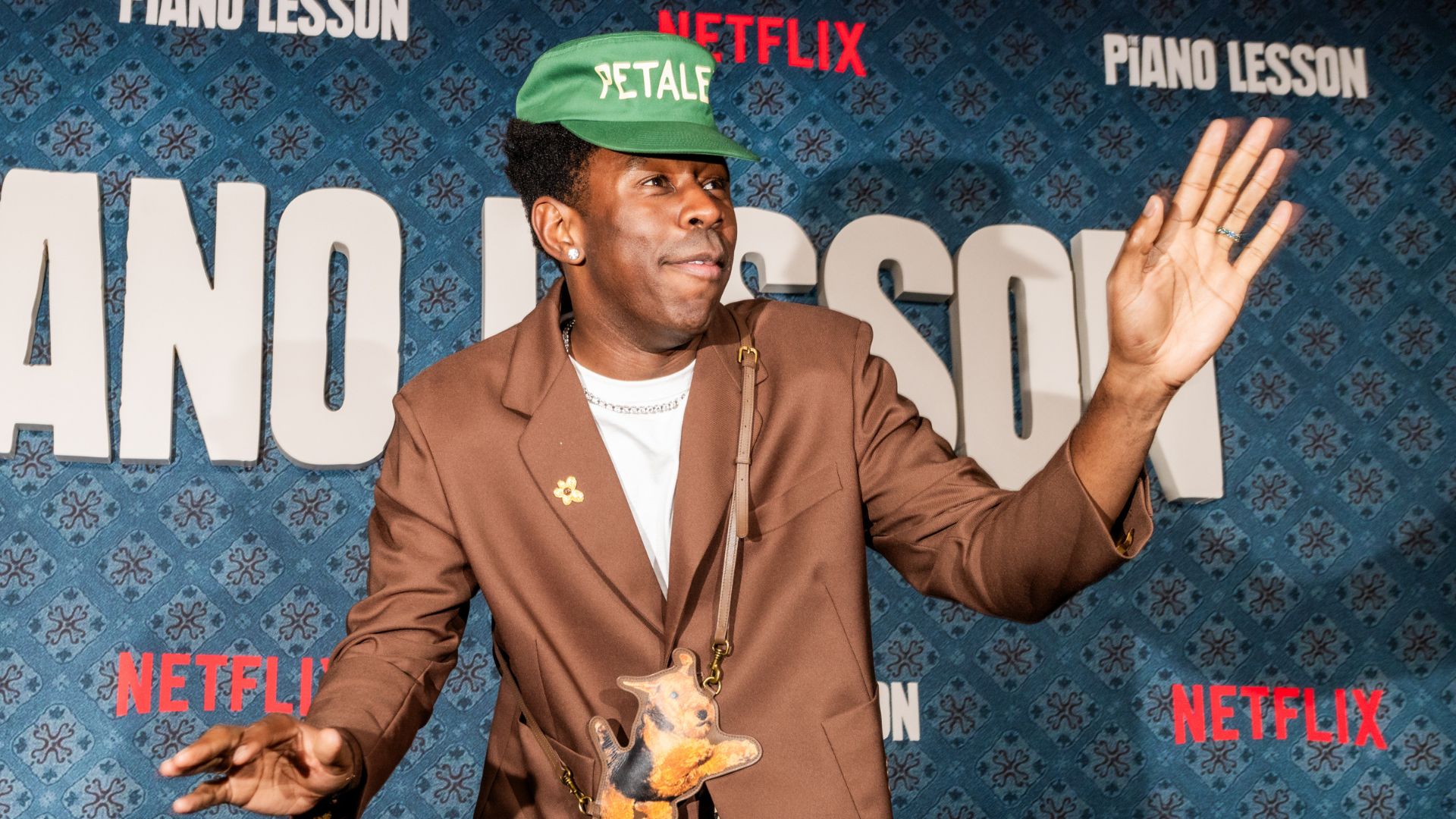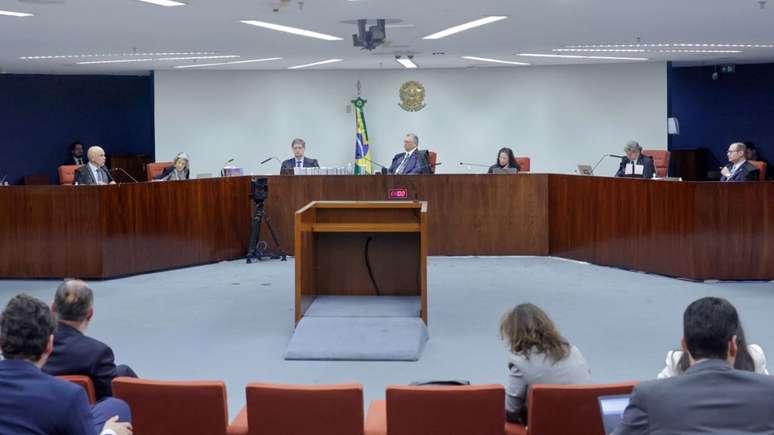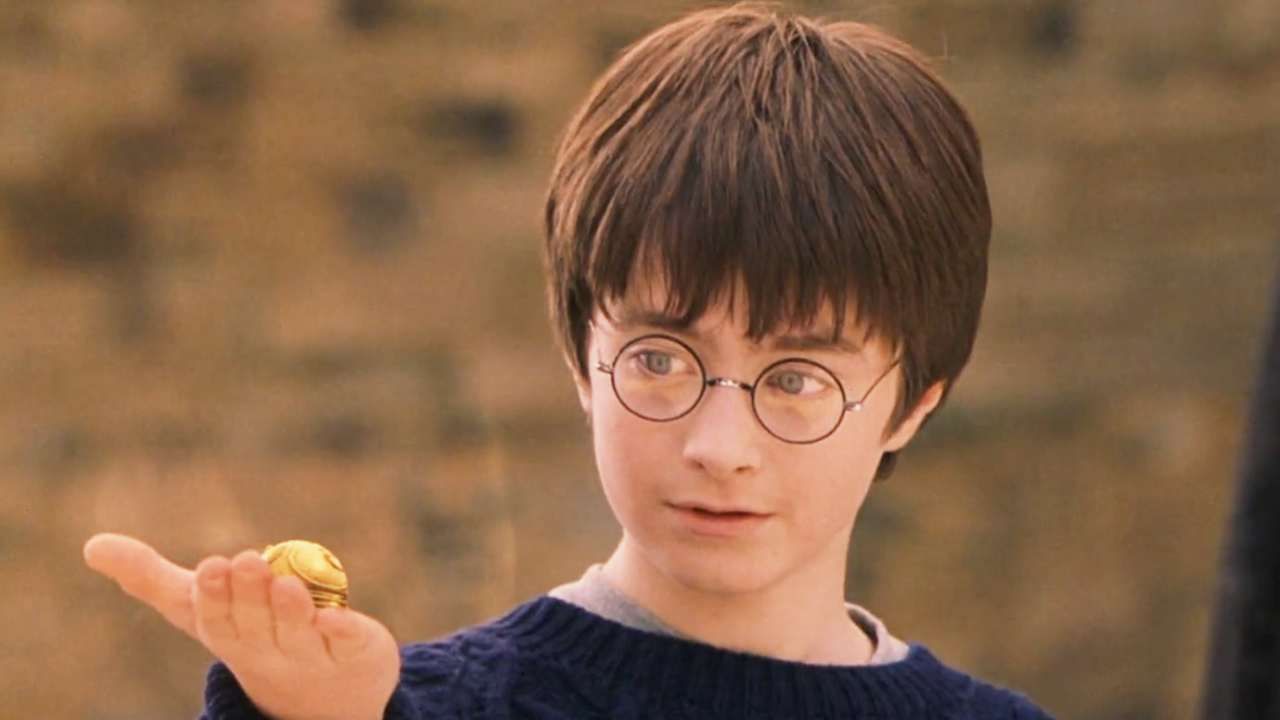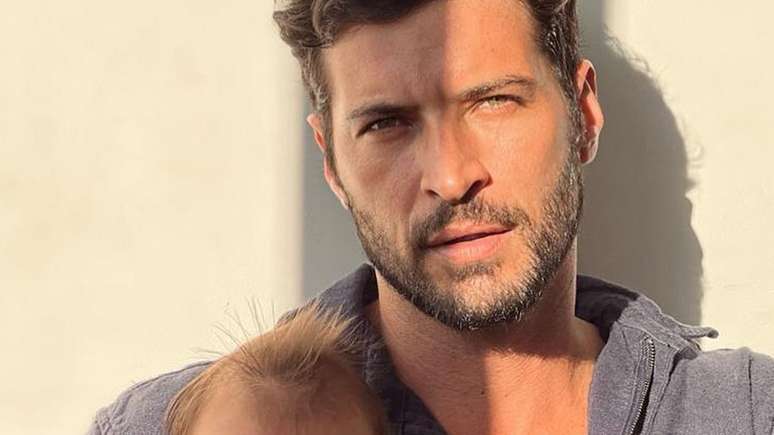The latest reinterpretation of Tyler’s past, confirmed in the Lollapalooza Brasil 2026 lineup, shows how the internet gives — and takes.
In 2015, with the release of his fourth album, Cherry Bomb, Tyler, the Creator launched a limited edition magazine as part of its project Golf Mediawith interviews with people like Seth Rogenas well as materials related to the album, such as a scan of the Moleskine notebook, in which he wrote down his ideas. He dedicated a few pages of the book to highlighting the records that influenced him most: Hell Hath No Furyfrom Clipse; In My Mindfrom Pharrell; and, significantly, Voodoomasterpiece by D’Angelo released in 2000. In his text about the late R&B star, Tyler He recalled getting $30 from his grandmother for his ninth birthday and using the money to buy the CD. “My favorite videos on BET they were ‘Get Up‘, from Amel Larrieuxand ‘Left Right‘, from D’Angelo“, he wrote. “I bought both albums, and I will never regret it.”
Last week, following the tragic death of D’Angelo, Tyler took to Instagram to pay tribute to the artist who influenced his music so much — but things quickly went off the rails.
After a sincere post, in which he repeated much of what he had written ten years earlier, comments began to appear en masse — some asking for new music, others disdaining the tribute or even questioning who he was. D’Angelo. As you usually do, Tyler took to Twitter and criticized a segment of his fan base that he pejoratively called “Sun Seekers” — that is, white fans who were unaware of the legacy of D’Angelo. A post from the hip hop news aggregator Kurcco highlighted that the Tyler liked a tweet that said: “The guy has collaborations with Charlie Wilson, Erykah Badu, DJ Drama etc., and they still refuse to engage with black art in a meaningful way. Very cannibalistic.”
The debate that arose suggested that Tyler, the Creatorwith the initial and highly offensive work of Odd Futurereportedly cultivated a fanbase of white incels hostile to black music. The refrain was that he should expect these reactions to his tribute to D’Angelo — and that he only had himself to blame. The “evidence” presented was tweets and prints from his early career, in which Tyler did everything: from criticizing the protests for George Floyd even carry out “provocations” such as wearing a mantle of Klan and sell products with images inspired by the racist figure Sambo. More than provocations from an artist expressing a (mistaken) form of racialized postmodern anguish, these facts began to be used as evidence that Tyler He hated himself and his blackness. It’s the kind of conversation tailor-made for the internet.
The idea that Tyler cultivated an audience of white incels ignores the fact that Odd Future I already had a lot of black fans from the beginning. It was a group of black teenagers making edgy, experimental music that actually gained a lot of young, black listeners. Not to mention the evolution of the fan base of Tyler in the last 15 years. Even taking this argument literally, it does not explain the artist’s current audience — which, numerically, has already surpassed that of his early years. Furthermore, it is a revisionist reading. On the same networks where Tyler published offensive comments in the early 2010s, he also expressed admiration for the likes of Erykah Badu and D’Angelo. The point, at that time, was that Tyler it was full of contradictions. The anger expressed in his music was no different from that of Eminemwhose internal frustrations with masculinity fueled the most brilliant and, at the same time, violent, misogynistic and homophobic works of his career. It was never to be taken literally.
The illogicality of this argument extends to the conclusion: the idea that the last decade of Tyler — with its open embrace of both classic forms of black music and more traditionalist rap (see “That Guy”, his vibrant reinterpretation of “Hey Now”, from Kendrick Lamar) — would just be an attempt to attract new black fans to remain relevant. To believe this, one would have to ignore everything that actually happened in the course of Tyler and the Odd Future. It would require relying on a curated retelling of history rather than lived experiences — exactly the terrain the internet inhabits: the space between content and context.
The love of Tyler for hip hop as an art form, in the purest sense of the word, is almost irritatingly well documented. It was only last year that he fell out with the internet’s “white rapper of the month,” Iancalling his style and stance offensive in an interview with Maverick Carter. “There’s this white kid, an ordinary Caucasian guy, who keeps imitating the Future and the Gucci Mane — the rap — and people say, ‘Yo, that’s awesome!’… but, bro, it’s parody. He’s not even trying to improve his rap,” he said.
Tyler he took Roy Ayers for the festival Camp Flog Gnaw in 2017 and, last March, after the death of Ayersshared a moving tribute to the neo-soul pioneer, calling him “the foundation of my sound.” All this to say that if there is an average type of fan Tyler, the Creatorhe’s probably more of an enthusiast obsessed with artists like D’Angelo than a white kid who just hates black music.
Which clearly frustrated Tyler it was the fact that commenters were more focused on demanding new music than on what he was actually posting. This is, without a doubt, the most common problem celebrities face in the digital age — fans so obsessed that they completely miss the point. It also doesn’t help that Tylerlike virtually every popular rapper of the last two decades, has a large white audience — a phenomenon that predates his generation by at least twenty years. Still, it’s a stretch to call them “incels,” and it’s unclear what that label—centered on lonely men and misogyny—would mean in this context. Furthermore, today’s so-called “white incels” — fueled by a steady stream of controversial streamers like Adin Ross and N3ON — they’re certainly not listening Tyler, the Creatorthe artist who released an album called Flower Boy.
And this isn’t even the first time in the last year that old material from Tyler has resurfaced on the internet, generating the same familiar cycle of online debates — a veritable furore of speeches wrapped in the language of “accountability” and well-intentioned policy, but which, in practice, only serves to feed the machine of digital engagement. Last year, after Tyler briefly overtook Taylor Swift in the ranking “Top Artists — Global” from Spotifyswifties began sharing screenshots of his old lyrics, reigniting a days-long argument over his past misogyny. Tyler responded to the controversy in his own way: during a show in Boston, he declared, “I left my Swifties all angry with their racism… bitch, listen ‘Tron Cat‘. I don’t fucking give a fuck. They will end up bringing the old me back.”
In this new controversy, however, the poison is stronger. The relationship of Tyler with his blackness — from accusations that he encouraged white fans to say the N-word (the actual quote was stupid, but much less dark), to derogatory comments about black women — actually offers more fertile ground for criticism. That said, content creators on TikTok began sharing accounts of the supposed “anti-blackness” of Tylerwhich, as usual, end up intertwined with personal stories.
With some fairness, many online commentators acknowledge that Tyler evolved, but they claim that by not publicly and explicitly apologizing for his past behaviors, he would not have paid enough for his actions. This most recent “crisis” has been widely described as the moment when Tyler is “taking their lashes”. And it is precisely in this language that what is really happening is revealed. There is no excuse for the posts and comments for which Tyler he became known at the beginning of his career — but the internet is driven by bloodlust, not justice. To the point of a tribute to D’Angelo turned into almost a week of discussions about tweets from more than ten years ago. About that, Chris Brown is on a world stadium tour.
The kind of debate increasingly common in digital spaces — where we reduce individuals to digestible data — is useless for truly productive conversations about anti-Blackness, art, or misogyny. It’s all content designed to poke at and explore the complex issues that make up our identity, generating intense emotions that fuel endless publications. The more one-dimensional you can portray someone, the better. Tyler, the Creator It may even have emerged driven by optimism about the internet as a tool to give a voice to the misunderstood, but it has transformed into a force that destroys precisely the nuance and context that make us human.
-
Internet
-
online
-
Tyler the Creator
Source: Rollingstone
Rose James is a Gossipify movie and series reviewer known for her in-depth analysis and unique perspective on the latest releases. With a background in film studies, she provides engaging and informative reviews, and keeps readers up to date with industry trends and emerging talents.



![Tomorrow Belongs to Us: What’s in store for Wednesday 22 October 2025 Episode 2058 [SPOILERS] Tomorrow Belongs to Us: What’s in store for Wednesday 22 October 2025 Episode 2058 [SPOILERS]](https://fr.web.img6.acsta.net/img/95/64/95643daa3fa690142f3135b300b4ef9d.jpg)



